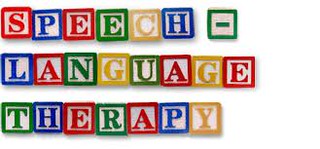Speech Disorders

December 13, 2021
Imagine you wanted to ask a friend for gum, but each time you tried to speak, you said “gug.” Imagine losing your voice. Imagine being silenced.
People with apraxia of speech and vocal fold paralysis face these types of struggles every day. Speech disorders are challenging to live with because they interfere with a person’s ability to communicate, which is a basic human need.
Speech is the way we produce sounds to share meaning—it is the auditory expression of language. Speech begins with breathing, as the air passes through our vocal folds which vibrate to create our voice. Our throat shapes our individual voice, and our mouth shapes our voice into individual sounds. Speech disorders interfere with this and refer to the following disorders: articulation disorders, fluency disorders (stuttering and cluttering), voice disorders, and motor speech disorders (apraxia and dysarthria). Speech disorders are not the same as language disorders, learning disabilities, and developmental disabilities.
A speech disorder may be developmental, meaning a person is born with a speech disorder that shows up by preschool, or they may be acquired, the result of damage to the brain such as a brain injury or stroke.
The most commonly known speech disorder is stuttering, which is the disruption of the smooth forward flow of speech. Stuttering feels like your speech gets stuck, and you cannot control it. That feeling of a loss of control over your own talking makes it a challenging disorder to live with. Stuttering is genetic and usually runs in families. The best way to support a person who stutters is to listen patiently and not interrupt them while they speak. If you stutter, you are not alone. You can ask for help. Start by letting a teacher or your counselor know that you are worried about your stuttering. We have speech therapists here at Arcadia High School (AHS), and we have other students on campus who stutter. Symptoms of stuttering normally appear at the age of four and include the repetition of sounds, words, or parts of phrases, the interjection of extra sounds or words, the elongation of words, the pausation during sentences or words, the tension in one’s voice, and the feeling of being frustrated or embarrassed while talking.
Genevieve Huffman, the speech-language pathologist at AHS, has stated, “One of my absolute favorite types of therapy is fluency therapy for people who stutter. It is absolutely amazing to see the positive impact that this therapy can have on a person. When I was in graduate school at the University of Redlands, I enjoyed my fluency clinic the most.”
An articulation disorder is a disorder that occurs when a person cannot produce a specific speech sound or sounds correctly and clearly. Articulation disorders cause a person to have trouble pronouncing certain sounds, like “r,” “l,” or “s.” This can cause a lisp or the substitution of one sound for another such as /w/ for /r/ as in “wabbit.”
If you have ever gotten sick and had trouble with your voice, you have experienced laryngitis, the most common type of voice disorder. A voice disorder occurs when we have problems with our breathing or our vocal folds. This can change the pitch, loudness, or quality of our voice. When a voice disorder is severe, a person may lose their voice altogether. The people who are most likely to have a voice disorder are teachers and singers. The best way to protect your voice is to stay hydrated, limit yelling, and rest your voice after you use it. Many people may remember when Adele developed vocal nodules from overuse of her voice. These are like calluses on your vocal folds which are delicate, thin muscles. Want to help your teacher protect her voice? Bring her a bottle of water to show you care!
If you are interested in speech disorders, then you might like a career in speech-language pathology. Did you know that Speech-Language Pathologists are licensed, medical professionals? They can work in hospitals, private clinics, or schools. If you are interested in being a speech therapist, you will want to pursue a master’s degree in the field of communication sciences and disorders. It is a high-needs field with a lot of job openings. It is known to be a high stress job, but it is also a rewarding job that focuses on helping other people.
Like other studies, speech pathology does not stop progressing for the better.
“There is this new specialty in the field of communication sciences and disorders that is all about providing gender-affirming voice therapy to transgender people. How amazing is that! I have no idea how to do this type of therapy, but I really want to learn in a continuing education class,” Huffman claims. “I think that voice training as a gender-affirming medical service is such an important part of helping a transgender person overcome their gender dysphoria.”
There is no shame in receiving assistance for speech disorders, so please do not be afraid to ask for help!
Photographic Courtesy of FLICKR.COM
